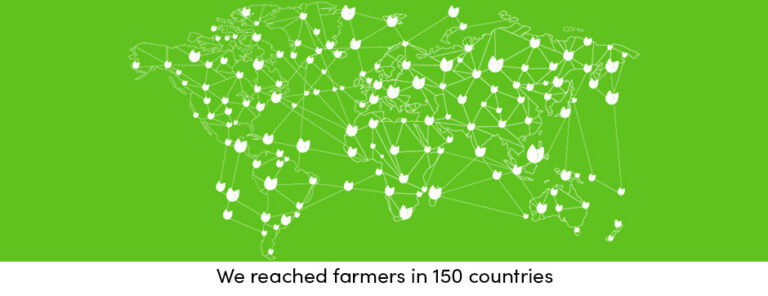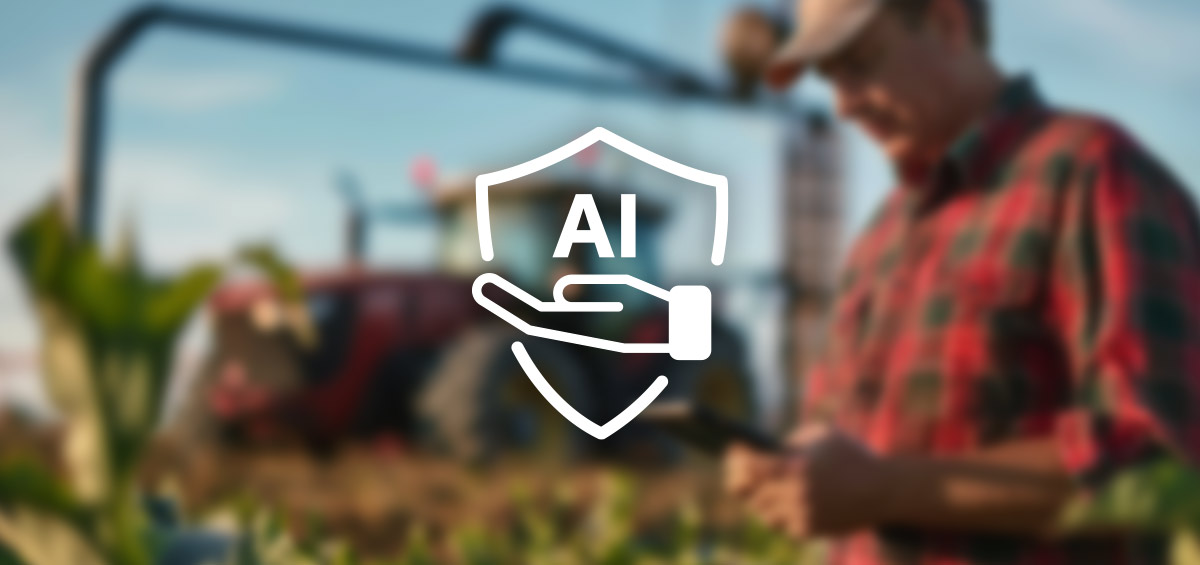Decision #1: Strong Sponsorship vs. Trying Out
Deciding for an implementation of a farm management software on a big-scale farm is a decision that will determine the software support for total farm operations for at least the next 5-10 years. Such a big decision deserves the right attention of the management board and/or farm owners, depending on the level of their involvement in the decision-making process. We have witnessed strong project kick-offs and high-quality project steering where the management board provided strong and dedicated project sponsorship as a sign for all employees that the farm management software plays an important role for their business and providing clear and strong messages resulted in much faster and smoother adoption of the software by all employees.
We also experienced some projects where management decided to implement a farm management software with a good will to follow the trends of digital transformation but had a soft approach in communication to their employees like “Let’s try it and we’ll see how it will go, whether it will be useful for us”. If a manager/owner is not fully convinced that farm management software will serve as a backbone of farm operations and deliver important insights, there will be a very few employees in the company that will think differently and engage efforts needed to adapt the software as a daily operations tool. Even if a manager is fully convinced in the value proposition and benefits, but follows a soft approach, employees on a farm very often don’t want to change way of working if they don’t need to and the “Let’s try” approach opens the space for excuses. Such soft approaches often lead to project failure and represent a bad management decision.
Every implementation should be started with a strong management sponsorship and a clear understanding of the value proposition and all benefits a company will have from a farm management software, which also needs to be communicated to all stakeholders.
Decision #2: Buy vs. Build
Farms often tend to think they will make a lower investment if they go with a bespoke farm management software that will be tailored exactly by their needs rather than selecting one of the farm management software products available on the market which usually comes on a subscription business model. One can argue that it is a question of ROI for getting the right solution and I fully agree — it indeed is.
Approximately 50% of large-scale farms we work with have replaced their old FMS with our FMS product. A common reason is that they wanted to move away from tailor-built solutions where every innovation needs to be ordered and financed by them which bring the total cost of ownership (TCO) too high. Additionally, as technology in which the bespoke solution is built is not maintained and upgraded continuously, it gets phased out in several years making further upgrades less possible and again too expensive. The core business of a farm is not to think about innovating and maintaining an FMS, rather to continuously get innovation pushed to them by a specialized FMS company. Continuous innovation and lower TCO are key reasons why we see a growing number of large-scale farms moving towards FMS platforms that are available on the market.
Farms often fall into a trap that their processes are very different and specific comparing to other farms. A good analogy for these situations is an ERP implementation. When implementing an ERP system into an organization, the goal is not just to get a new software support, but to use this as an opportunity to align the organization’s processes with common industry-accepted processes. FMS platforms available today on the market often offer quite high level of flexibility to track farm processes in multiple ways to fit the majority of farms. It is important that integration possibilities of an FMS platform provide an opportunity to connect the platform with the existing eco-system of software and hardware solutions on the farm (ERP, machinery, etc.) and if there actually are specific processes on a farm that need to be maintained, to be able to integrate a solution that supports these processes with the FMS platform.
Decision #3: Utilizing Key Resources vs. Full Process Digitization
Large-scale farms often seek to kick-off the farm management software usage by giving the tool to key employees who will manage and track the entire operations. Usually, those employees are the powertrain of the company and by putting all the burden of an FMS adoption and usage on their shoulders, they simply get additional jobs to do rather than additional support to make their life easier and get better information for decision making.
In general, there are three possible decisions on which employees will be using an FMS platform:
- Full digitization of operational processes on-farm and including all employees to utilize the FMS (from managers, agronomists to tractor drivers). This should be the end goal of every farm as it brings full digital transformation benefits through higher operational efficiency. The ability to go immediately to this option depends on the internal ability of a company to start with implementation/adoption on all areas.
- Digitizing one vertical unit (usually a single production unit or a single farm location) by covering all unit processes and including all unit employees and then scaling it to other units in the next phases. This option is the best option if option 1 is not applicable from the start as it represents a phased approach unit by unit.
- Digitizing horizontally all production units, but including only key personnel like farm managers and agronomists from those units. The benefit of this approach is that a farm gets an immediate improvement in all areas of farm operations, from getting better insights for overall decision making to simplifying traceability reporting for authorities and certifications (Global GAP and similar). However, we recommend utilizing this option very carefully to avoid overloading your key employees and utilize it only as a temporary phase before rolling out FMS usage to all employees.
There are many important decisions that are made during the FMS implementation that impact the success of the implementation and adoption. Three decisions covered in this article represent few major decisions we often see on large-scale farms and making the wrong step here can often lead to unwanted project outcomes.
We are strong believers that FMS implementation needs to make a fast ROI, so choosing the right farm management software vendor that understands local market opportunities and will guide a large-scale farm carefully while deciding on the appropriate approach is the biggest and the most important decision farm needs to make.
— AGRIVI is one of the key global leading farm management software companies that support farmers to reach sustainable crop production.
If you are interested in learning more about AGRIVI implementation projects, contact us.





